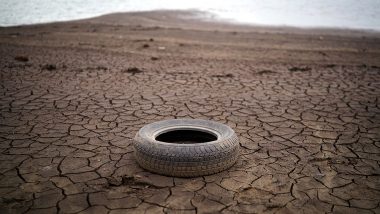There could be an increase in deadly heatwaves in the country. According to the Intergovernmental Panel on Climate Change (IPCC) report which was released on Monday, if global warming is not controlled at the earliest, it could result in drastic climatic conditions on the earth. In 2015, heatwaves had killed 2,500 people in India and if the condition continues, we may have similar experiences in the future. The report mentions that Kolkata and Karachi among cities in the Indian subcontinent that could be affected by the heatwave.
The much-awaited report by the United Nations, says urgent changes need to be done to reach the numbers to avoid such a situation. The Special Report on Global Warming states the world has increasingly warmed by 1C and is likely to reach 1.5C between 2030 and 2052 if it continues at the current rate. Steps should be taken to maintain it, otherwise, terrible floods, droughts, wildfires and extreme heat could be the result. Earth Will Reach 1.5 Degrees Celsius Threshold by 2030, Risk of Natural Calamities Gets Higher: IPCC Report.
The implications of the report will be discussed at the Katowice climate change conference in Poland this December. Governments will review the Paris Agreement and suggest measures to deal with climate change. India is expected to have a key role in the country being one of the largest carbon-emitting nations.
In a draft version of the report called 'Summary for Policymakers; obtained by AFP, Henri Waisman, a senior researcher at the Institute for Sustainable Development and International Relations, and a coordinating author of the report says, "Climate impacts are exponentially more dramatic when we go from 1.5C to 2C." Heat Wave: How the Extreme Temperature Can Affect Your Body and What You Can Do About It.
"One of the key messages that come out very strongly from this report is that we are already seeing the consequences of 1 degree Celsius of global warming through more extreme weather, rising sea levels and diminishing Arctic sea ice, among other changes," said Panmao Zhai, co-chair of IPCC Working Group I. To maintain the 1.5C, the global economy must become "carbon neutral" by 2050. While IPCC authors do not mention if the 1.5C goal is feasible, 2C could change the current state of nature.
(The above story first appeared on LatestLY on Oct 08, 2018 01:32 PM IST. For more news and updates on politics, world, sports, entertainment and lifestyle, log on to our website latestly.com).













 Quickly
Quickly




















